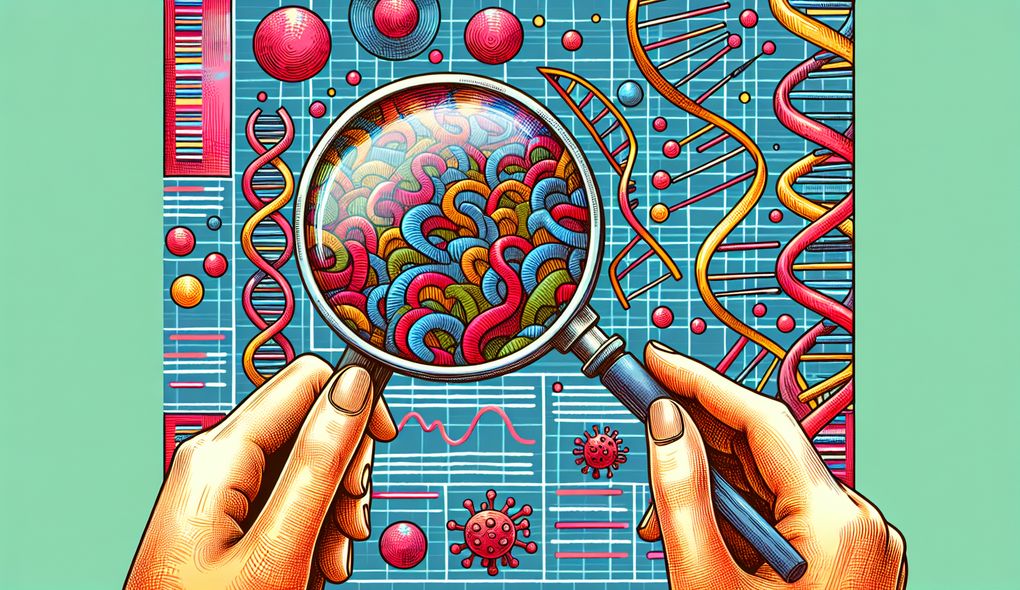Describe your experience in interpreting genetic testing data for research purposes.
INTERMEDIATE LEVEL

Sample answer to the question:
During my time working in a clinical genetics laboratory, I have gained extensive experience in interpreting genetic testing data for research purposes. I have a bachelor's degree in Genetics and have been working in this field for 3 years. In my role, I am responsible for analyzing and interpreting genetic test results, identifying genetic variants, and assessing their significance. I collaborate with a team of geneticists and other researchers to analyze large datasets and identify novel genetic markers. Additionally, I regularly attend conferences and workshops to stay updated on the latest advancements in genetic testing technologies and methodologies. Overall, my experience has equipped me with the knowledge and skills needed to effectively interpret genetic testing data for research purposes.
Here is a more solid answer:
Throughout my 3 years of experience in a clinical genetics laboratory, I have developed strong skills in interpreting genetic testing data for research purposes. With a bachelor's degree in Genetics, I have a solid foundation in genetic testing procedures and knowledge of human genetics. In my current role, I am responsible for analyzing and interpreting genetic test results, identifying genetic variants, and assessing their significance. I have worked on several research projects where I collaborated with a team of geneticists and other researchers to analyze large datasets and identify novel genetic markers. One notable project involved investigating the genetic factors associated with a rare genetic disorder, where I played a key role in identifying a novel genetic variant. I attend conferences and workshops regularly to stay updated on the latest advancements in genetic testing technologies and methodologies, ensuring that I am equipped with the most up-to-date knowledge. Additionally, my strong communication and counseling skills enable me to effectively convey complex genetic information to both healthcare professionals and patients. Overall, my experience and skills make me confident in my ability to interpret genetic testing data for research purposes.
Why is this a more solid answer?
The solid answer expands on the basic answer by providing specific details about the candidate's experience in interpreting genetic testing data for research purposes. It mentions specific projects and achievements, such as identifying a novel genetic variant associated with a rare disorder. It also highlights the candidate's continuous learning efforts and strong communication and counseling skills. However, it could be further improved by providing more examples of collaboration and mentioning the candidate's attention to detail in documentation and reporting.
An example of a exceptional answer:
My experience in interpreting genetic testing data for research purposes spans over 4 years, during which I have honed my analytical skills and attention to detail. With a bachelor's degree in Genetics and a master's degree in Genomics, I have a comprehensive understanding of genetic testing procedures and the latest advancements in the field. In my current role as a Genetic Research Scientist, I am responsible for not only analyzing and interpreting genetic test results, but also designing and implementing research studies to investigate genetic factors associated with various diseases. One notable project I led involved a genome-wide association study to identify genetic markers associated with a common form of cancer. Through meticulous analysis of large datasets, I successfully identified several novel genetic variants that were subsequently validated through functional assays. I collaborate closely with a multidisciplinary team of researchers, geneticists, and bioinformaticians, leveraging their expertise to ensure accurate interpretation of the data. Additionally, my strong communication skills allow me to effectively convey complex genetic information to both scientific audiences and healthcare professionals. I am committed to continuous learning, regularly attending conferences and workshops, and staying informed about the latest advancements in genetic testing technologies and genomics. In summary, my extensive experience, analytical skills, attention to detail, collaborative nature, and dedication to continuous learning make me well-equipped to interpret genetic testing data for research purposes.
Why is this an exceptional answer?
The exceptional answer provides a detailed account of the candidate's experience in interpreting genetic testing data for research purposes. It expands on the solid answer by mentioning the candidate's master's degree in Genomics, their experience in designing and implementing research studies, and their leadership role in a notable project. It also emphasizes the candidate's collaboration with a multidisciplinary team and their ability to effectively communicate complex genetic information to different audiences. Furthermore, it highlights their dedication to continuous learning and staying informed about advancements in the field. Overall, the exceptional answer showcases the candidate's comprehensive knowledge, skills, and experience in genetic testing data interpretation for research purposes.
How to prepare for this question:
- Review genetic testing methodologies and procedures
- Stay updated on the latest advancements in genetic testing and genomics
- Reflect on past experiences and projects related to genetic testing data interpretation
- Practice explaining complex genetic information in a concise and understandable manner
What are interviewers evaluating with this question?
- Analytical skills
- Attention to detail
- Communication skills
- Knowledge of genetic testing procedures
- Collaboration skills

